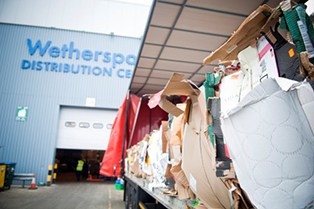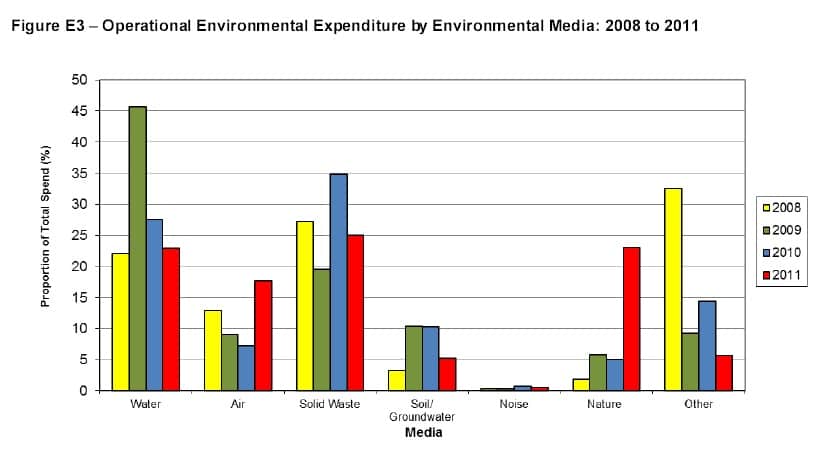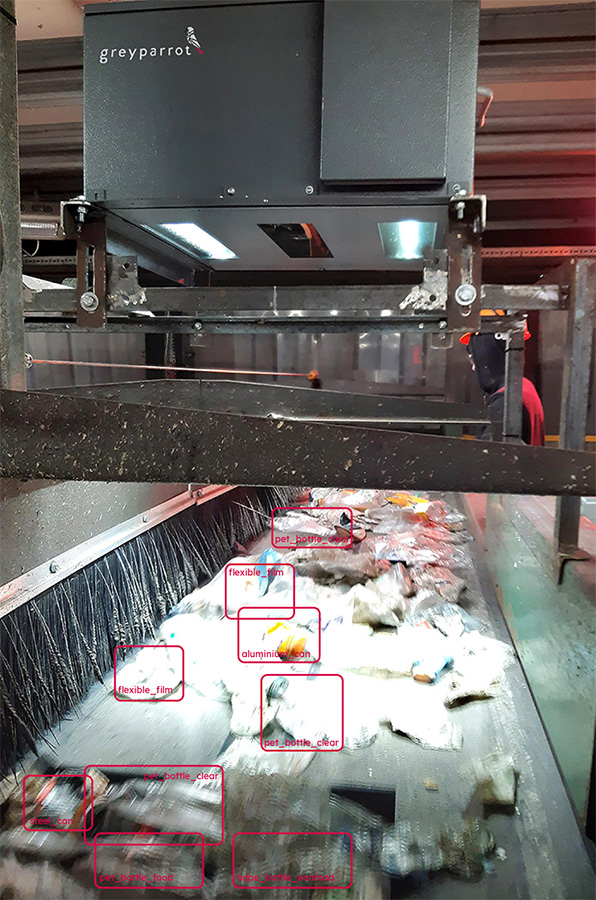
In comparison, 24% of UK industry environmental protection spending went on waste water measures, 17% went towards air pollution measures and 15% was spent on nature protection. In total, Defra estimates that UK industry spent 885.4 million on environmental protection from solid waste in 2011.
Published last week (June 27), Defras annual Environmental Protection Expenditure by Industry survey collates responses from UK businesses in the extraction, manufacturing and energy and water supply sectors.
Environmental protection expenditure is spending incurred by a company where the primary aim is to reduce pollution caused during operations, including: emissions to air or water; the disposal of waste materials; land, soil and groundwater protection; noise and vibration prevention; or to protect the natural environment.
Operational costs
Of the total 2,422 million spent by UK industry on solid waste, 851.9 accounted for operational expenditure, which refers to in-house operating costs of a companys own environmental protection activities and payments to others for environmental protection services, such as waste disposal.

Solid waste made up the area of greatest operational expenditure in 2011 and also in 2010, when the figure was 811.5 million. This shows a considerable increase from the 564.5 million of operational expenditure on solid waste measures in 2009, which Defra attributes to the increasing cost of waste disposal (such as escalating landfill tax) per unit volume.
As in 2010, the basic and fabricated metals sector of UK industry again spent the most on operational solid waste measures in 2011 (116.6 million), although this has fallen from the 127.4 million estimated to have been spent the previous year.
The next largest operational costs for solid waste in 2011 were incurred by the chemicals and pharmaceuticals sector (104.5 million) and the food, beverages and tobacco products sector also incurred high operational solid waste costs (101.3 million the same figure as in 2010).
The energy production and distribution sector of UK industry, meanwhile, incurred the lowest operational costs for solid waste measures in 2011 at 7.3 million.
However, the survey states that comparisons with earlier years statistics should be treated with caution, as results can fluctuate noticeably from year to year due to the low level of response (typically around 20-30%) and because of changes in survey methodology.
According to Defra, the 2011 survey received 225 responses, giving a response rate of 21.2%.
Capital costs
Capital expenditure on solid waste measures by UK businesses in 2011 was 33.5 million. This area of expenditure includes End of pipe investments, such as equipment to clean up at the end of the production process, and integrated investment expenditure, such as equipment to reduce or reduce or eliminate pollution during production.
Related links
Overall capital costs were 316.6 million for UK businesses in 2011, with the largest capital costs going towards water (95.8 million) and air measures (125 million) rather than on solid waste.
A further 262 million of the overall costs of environmental protection went towards research and development, the Defra survey found.
Defra is required to provide estimates of UK industrys expenditure on environmental protection to the European Commission under the EU Structural Business Statistics Regulation 295/2008. The next annual survey is set to be released in May 2014 and will include data for 2012.









Subscribe for free